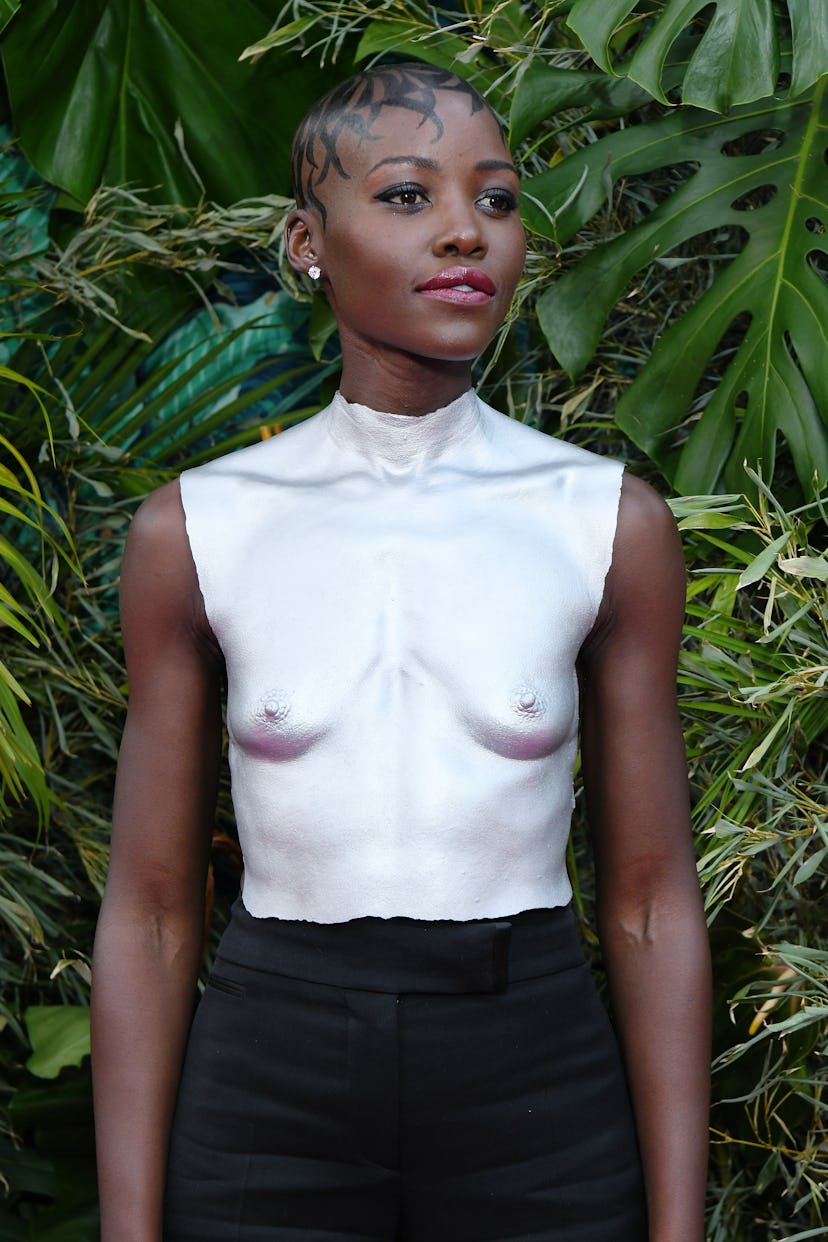Lupita Nyong'o Had Her Silver Breastplate Molded Directly From Her Body

Molded breastplates have seen a revival in recent years on fashion girls like Kim Kardashian, Zendaya, Bella Hadid, among others and one the runway at brands like Mugler and Schiaparelli. But on Sunday, Lupita Nyong’o may have just staked a claim for the most thought-provoking breastplate to date.
The 40-year-old actress wore a design by Pakistani artist Misha Japanwala for the Tony Awards in New York City. And while the piece speaks to the breastplate’s comeback of late it, more notably, holds a deeper meaning that is central to Japanwala’s designs.
“Honored, humbled, strengthened and energized to don this breastplate created by Misha Japanwala, which she cast and molded of my body,” the actress wrote on Instagram. “Misha Japanwala is a Pakistani artist and fashion designer, whose work is rooted in the rejection and deconstruction of external shame attached to one’s body.”
The designer is known for her pieces that reframe conversations around the male gaze and cultural institutions in Pakistan (like honor killings and women’s rights). She has a new exhibition at the Hannah Traore Gallery in New York City based on the word “‘Beghairat” or “Shamelessness”—which partially, informed the inspiration behind Nyong’o’s piece.
Japanwala’s work has been seen on the likes of Lizzo and Cardi B (who wore a pair of gold molded breastplates for the “Rumors” music video). Halsey has worn a sculpted bra as well, and Gigi Hadid is also a fan of the brand.
The actress’ breastplate is a rejection of the shame associated with nudity and the body, especially the female form. Though the meaning of the piece may have went over a portion of the public’s head (judging by the unnecessarily harsh comments under the actress’ Instagram post) it was true to form for Nyong’o. She has always been one uplift young artists and has taken a liking to making a statement through style.
“The word ‘beghairat’ (translation: shameless) has become an anchor in my practice; thousands of people have used it to describe me and the work I create, in an effort to insult and shame me into silence,” Japanwala said in a statement. “In reclaiming the word and understanding that the rejection of others’ narrow definitions of shame is one of the most powerful tools for liberation, I’ve come to deeply appreciate and respect what living a life of shamelessness truly means.”